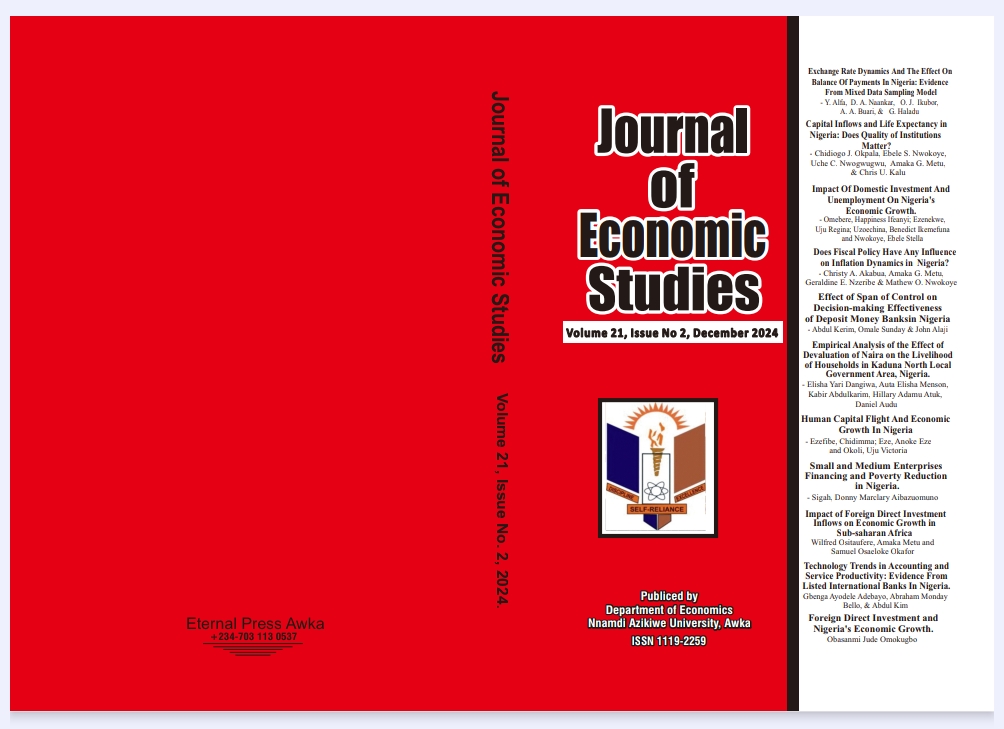DOES FISCAL POLICY HAVE ANY INFLUENCE ON INFLATION DYNAMICS IN NIGERIA?
Keywords:
Fiscal policy, inflation rate, government expenditure, tax revenue, NigeriaAbstract
The rate of inflation has consistently been rising over time. Fiscal policy’s role in regulating economic activities overtime using the instruments of taxation and public spending influences aggregate demand. Hence, this study examined how well fiscal policy influenced inflation in Nigeria, between 1986 and 2023. Specifically, the study examined the impact of government expenditure, tax revenue and fiscal deficit on inflation in Nigeria during the period. Using autoregressive distributed lag (ARDL) technique, the findings revealed that government expenditure, fiscal deficit and GDP growth rate had negative impact on inflation both in the long and short run, while tax revenue had positive impact on inflation. However, in the long run, only fiscal deficit was statistically significant while in the short run, fiscal deficit, government revenue and government expenditure were statistically significant. Based on the findings, it is recommended that government spending to productive activities should encourage because it will increase output and reduce inflation.


